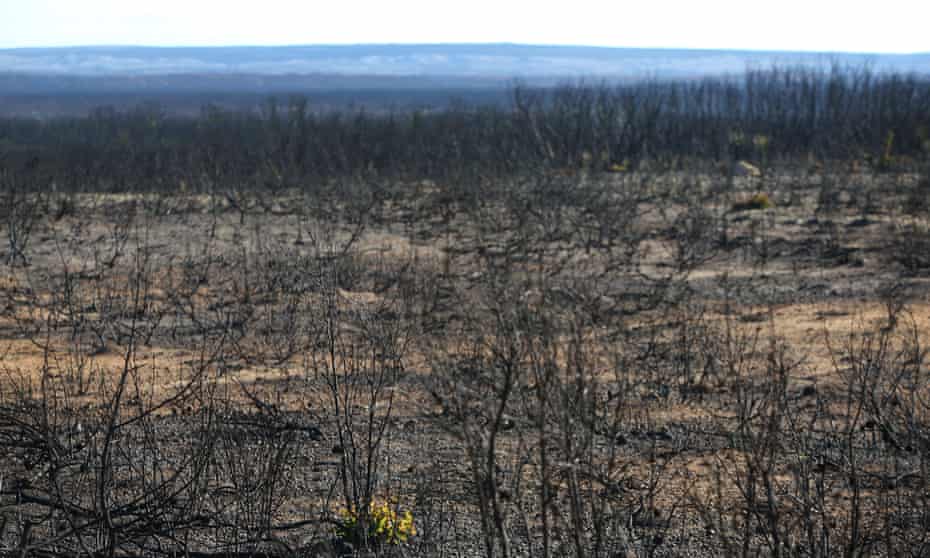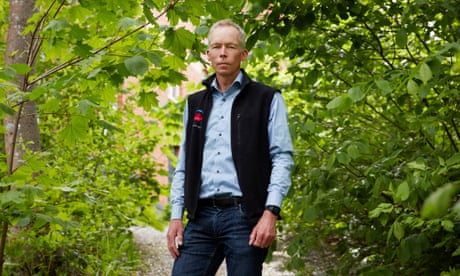Extract from The Guardian
Breaking Boundaries: The Science of Our Planet shows the toll the demise of the Earth’s natural places is having on the people who study them.
New David Attenborough film looks at Australia's bushfires and the climate crisis – video trailer
Last modified on Fri 4 Jun 2021 03.31 AEST
One of Australia’s leading coral reef scientists is seen breaking down in tears at the decline of the Great Barrier Reef during a new Sir David Attenborough documentary to be released globally on Friday evening.
Prof Terry Hughes is recounting three coral bleaching monitoring missions in 2016, 2017 and 2020 when he says: “It’s a job I hoped I would never have to do because it’s actually very confronting …” before tears cut him short.
The emotional scene comes during the new Netflix documentary, Breaking Boundaries: The Science of Our Planet, and shows the toll the demise of the planet’s natural places is having on some of the people who study them.
The film visits scientists working on melting ice, the degradation of the Amazon, and the loss of biodiversity, and looks at a 2019/2020 “summer from hell” for Australia that featured unprecedented bushfires and the most widespread bleaching of corals ever recorded on the Great Barrier reef.
The 70-minute film features another Australian scientist, Dr Daniella Teixeira, walking through a blackened landscape where she was working to conserve endangered glossy black cockatoos.
“There’s no sign of any wildlife at all,” says Teixeira, with footage of twisted and burnt animals and trees turned to charcoal. “There’s nothing left.”
The documentary, fronted by Attenborough, is centred on the research of Swedish scientist Prof Johan Rockström, whose work looks at the concept of tipping points and boundaries in different systems around the planet, such as the polar regions, the Earth’s biodiversity and the climate.
Netflix says the film documents “the most important scientific discovery of our time – that humanity has pushed Earth beyond the boundaries that have kept Earth stable for 10,000 years, since the dawn of civilisation.”
“In big thermal extremes like we’ve been seeing during mass bleaching events in recent decades [corals] can actually die very very quickly. They cook,” he says in the documentary.
Hughes told the Guardian that “if anything I think the emotional response has lessened over time” and that the 2016 bleaching event in the north of the reef “was the most confronting”.
“But it’s still deeply saddening,” he said.
He
said Rockström’s research, which he has collaborated on, was “simple
and powerful” and showed how the world was on a “trajectory that is not
sustainable”.
Australian scientist Daniella Teixeira revisits Kangaroo Island after the devastating black summer bushfires in Sir David Attenborough’s new Netflix documentary. Photograph: Lisa Maree Williams/Getty Images
“You can easily transgress a tipping point and not notice it for a couple of decades,” he said, adding he thought the amount of CO2 in the atmosphere had probably reached a tipping point for coral reefs in the 1980s.
Hughes, of James Cook University’s Centre of Excellence for Coral Reef Studies, said the black summer bushfires and coral bleaching “points to Australia’s vulnerability”.
In the documentary, Attenborough says: “We are heading for a future where the Great Barrier Reef is a coral graveyard.”
He describes Australia’s 2019/20 summer as “a summer from hell, fuelled by record-breaking temperatures and drought”.
Texeira, from the University of Queensland, is filmed in February 2020 returning to sites on Kangaroo Island off the South Australian coast where she was studying endangered glossy black cockatoos.
She finds one of the nests erected to help the birds on a fallen tree with an iron plate around the trunk to stop possums climbing up and attacking the young.
With the iron buckled from the heat and the nest melted, Texeira says: “They weren’t enough to save them.”
She told the Guardian: “There are days when I still get overwhelmed. At the end of the day, we’re humans and we have emotions.”
She had been visiting the island for four years and the fires had come just as she was completing her PhD.
“I have come out the other side now but it has really made me more focused on the urgency of the problems and how we as scientists can make changes now.”
Breaking Boundaries: The Science of Our Planet is available on Netflix on 4 June

No comments:
Post a Comment